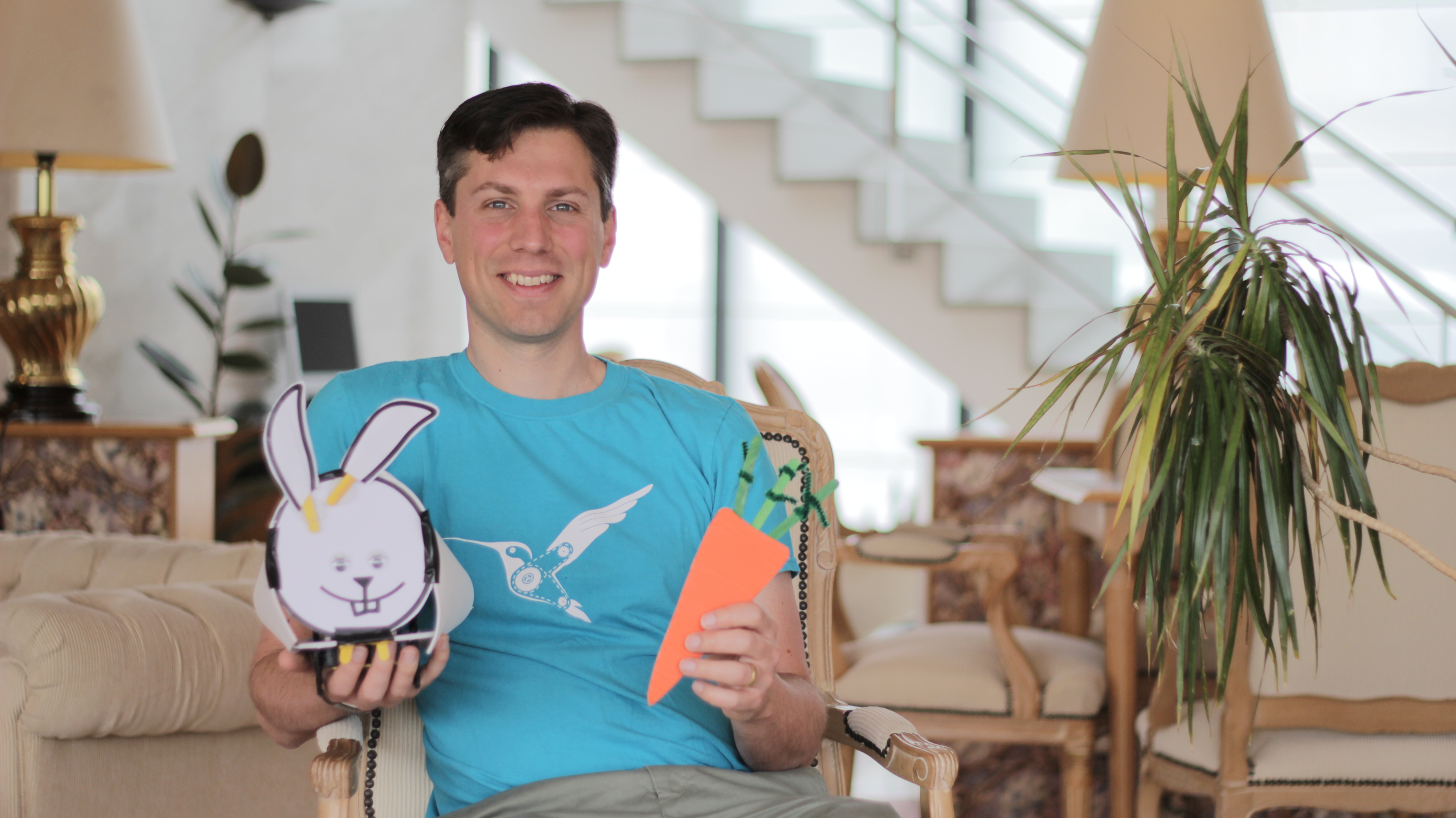Collective residencies / ROBOTICS / Olot
TOM LAUWERS
From Monday, 7 May 2018 to Sunday, 13 May 2018
Bio
Tom is the founder and chief roboticist of BirdBrain Technologies, located in Pittsburgh, PA. He seeks to design educational tools that catalyze positive making, coding, and engineering learning experiences in the classroom.
Tom received a Ph.D in robotics in 2010 from Carnegie Mellon in part for his work designing the Finch robot and Hummingbird robotics kit. The Finch is a small robot designed to inspire and delight students learning computer science by providing a tangible representation of their code. The Hummingbird is a kit that allows students to create and program robots built from electronic components and craft materials.
Tom resides in Pittsburgh’s Squirrel Hill neighborhood with his wife, two kids, cat, and a small army of robots. He would be an invaluable ally in the event of a robot uprising.
És enginyer tècnic en informàtica i màster en programari lliure. És un àvid usuari de GNU/Linux i membre de la Free Software Foundation.
Project
Project shared with Bernat Romagosa, Jens Mönig, and John Maloney
MicroBlocks is a new programming language inspired by Scratch that can run right inside microcontroller boards such as the micro:bit, the NodeMCU and many Arduino boards.
The MicroBlocks system allows for dynamic, parallel and interactive programming, just like in Scratch, but with the twist of having your projects run autonomously inside the board without being tethered to a computer, thus offering the flexibility and liveness of tethered blocks programming without giving up the real-world applications of low level microcontroller programming.
With MicroBlocks, you can build your own digital instruments, interactive jewelry, electronic games and measuring devices, all by using blocks.
Microblocks in the Pyrenees
The Faber residency was wonderful, and I am very thankful for the opportunity provided to me by Olot and Catalonia. I am an enthusiastic early adopter of and contributor to Microblocks, a revolutionary technology that simplifies and democratizes the programming of microcontrollers. Seventeen years ago, as a third-year college student in computer engineering, I learned to write “firmware”, which is the program that runs on a microcontroller. Thirteen years ago, Arduino simplified this process, allowing dedicated hobbyists and artists without years of training in programming to program microcontrollers. Microblocks is the next step, as it will make it possible for anyone, even ten-year old children and their teachers, to program microcontrollers.
Faber provided the venue for me to work with the Microblocks team, and for four days we were able to do development work in person, thus rapidly making project improvements. The team behind Microblocks is made up of the John Maloney, the lead developer of Scratch (which has allowed millions of children to learn programming), Jens Mönig, the developer of Snap! (which extended a Scratch to allow more advanced use), and Bernat Romagosa, the developer of Snap4Arduino (which brought Snap! programming to microcontrollers). This extremely talented team is distributed all over the world – in Barcelona, Boston, Mannheim, and I am based in Pittsburgh. Although we can work on many things separately, the Faber residency brought us all together, accelerating the team’s progress and allowing us to confer on both strategy and development in real time.
The residency also coordinated well with local schools, leaders in the robotics education community such as Toni Moreno, and the Robolot conference. Through these partnerships we were able to show Microblocks to over 100 school children at three local schools, as well as provide workshops for sixty teachers and a keynote presentation of Microblocks at Robolot.
Finally, the residency’s well-structured and extremely generous meals allowed us to share conversations and ideas with the other fellows. I enjoyed learning about electronic artist Ana’s work analyzing Time magazine, and Selçuk’s upcoming Ph.D thesis on open design principles. I also got to know Jens’ partner in crime at SAP, Jadga, and members of Barcelona’s thriving educational electronics community, such as Joan and Josep.
I absolutely loved the residency program at Faber and hope to someday return to beautiful Olot; from the bottom of my heart, thank you for creating this very special place.

